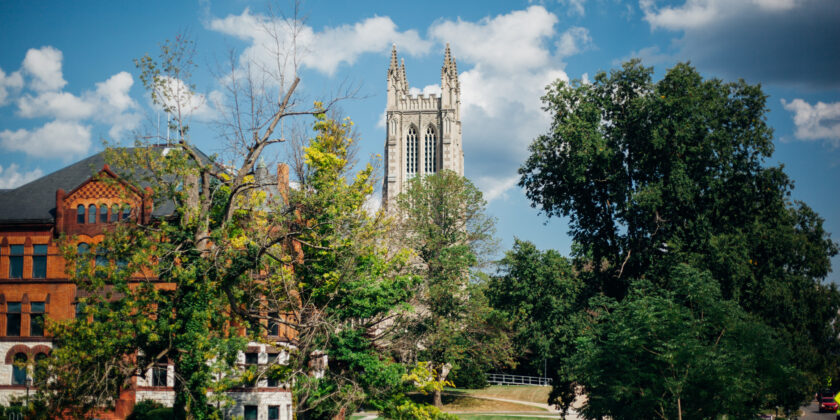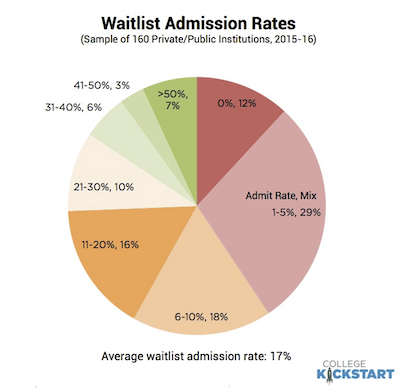2023 College Waitlist Advice
We must keep it real: most students are not admitted from the WL at highly selective schools.
Our primary advice? Get excited about where you have been accepted! Applying to college is hard; when a college says YES, that means something. Lean into those schools—you won’t think twice about where you were waitlisted a year from now.
Before implementing any waitlist strategies, it is important to deposit at a school where you have been admitted. Take advantage of admitted student days and other events that connect you with potential future classmates, including joining “Class of 2027” social media groups. These forums are often very informative, and fun, and can help you take your mind off the waitlist waiting game. Again, try to get excited—college is simply awesome. Where you go is not nearly as important or impactful as what you do once you get there to make it all that it can be. It can be everything you want it to be; it’s up to you to make that happen no matter where you go.
If you do want to stay engaged with your WL options, first get familiar with the WL data from past years. How many students are offered spots on the WL? How many accept their spot, and more importantly, how many does school X ultimately admit? Some of these numbers are dismal, but it is best to know what you are up against. Look at the Common Data Set first (http://www.commondataset.org/). A few other sites to review:
Once you have accepted a spot on the WL, deposited elsewhere, and familiarized yourself with the waitlist data, consider the strategies below. Not all of them are novel, but without much to lose, why not do all you can so you can look back without any what-ifs?
- Read the materials they send you when you are waitlisted. Follow ALL waitlist instructions. You might be asked to send updates to a specific WL manager or upload them on your applicant portal. If you previously connected with your rep (you should have at the beginning of the process), reach back out and ask them if they have any advice for you as a waitlisted candidate. Keep this line of communication open; do not send updates every week, but stay in touch to continue to demonstrate interest.
- If a school is open to it, send a waitlist letter. This letter should contain information updating the school on what you’ve been up to both inside and outside of the classroom since the time you applied—but most importantly—it needs to fill in any GAPS from your original application and highlight a few specific value-adds you will bring to X campus. This is where individualized feedback can be critical.
- Consider including:
- Academic Updates. Spend some time talking about coursework and school projects, and make connections to future courses of study. You can even drop in related courses you’d like to take at school X, like those you’d include in a “why school essay,” but only do this if you did not submit an essay of this type when you applied, otherwise you are being redundant, and that is not well-received.
- Extracurricular Updates. Include these only if significant and can be connected to how you will add value to the school where you are deferred. This includes school and non-school clubs, service commitments, and/or other leadership experiences you can highlight. Like the academic paragraph(s), making connections to similar opportunities you plan to undertake in college can be helpful additions. For example, if you talk about a new project you spearheaded as VP of your school’s Interact Club, you may want to include that you hope to lead a similar project within a specific club or group at school X. Being very specific is important.
- The additional ways you have connected with and continued to get to know school X since you applied. This could include setting up an informational interview with a local alum, a current student, reaching out to your regional alumni group, or continuing to connect with your regional rep via email. Show school X they have remained on your radar.
- Ask your guidance counselor to advocate for you. Ask them to send updated grades/transcripts promptly. Your grades should have remained the same or gotten better, not dipped.
- Obtain and have an extra letter of recommendation sent, but only if the school welcomes extra LORs. A teacher, coach, or someone else close to you who can speak to your potential contributions to school X could draft this letter. Some schools explicitly state on their WL docs they do not welcome or want extra LORs; if that is the case, don’t send. *Side note on alumni letters and letters from well-known and or famous people. Many students ask if these are helpful to send, and the answer is no. If you think that a big name vouching for you will help, it generally doesn’t as a stand-alone factor, and officers can see through these often brief and less than meaningful notes.
- Worth saying again: Make sure you follow any directions they provide!
Additional strategies…
- Check if school X has a local alumni group (Google it) and if so, reach out to them and ask if there is anyone willing to meet with you via Zoom for an informal informational interview. Use this meeting as an opportunity to learn more about the school, as those learnings might be nice to include in a WL update.
- Use social to your advantage. Don’t be afraid to engage with your WL school on TikTok, Instagram, or other social channels. Don’t forget to open all email correspondence from the school, as schools track opens/clicks as interest.
You don’t need to…
- Show up on campus or engage in other over-the-top moves that you think will make an impact. They won’t. Please understand that this type of behavior is not appreciated or welcomed.
More questions about the WL? Email us!
*Stay in the know! Subscribe*







